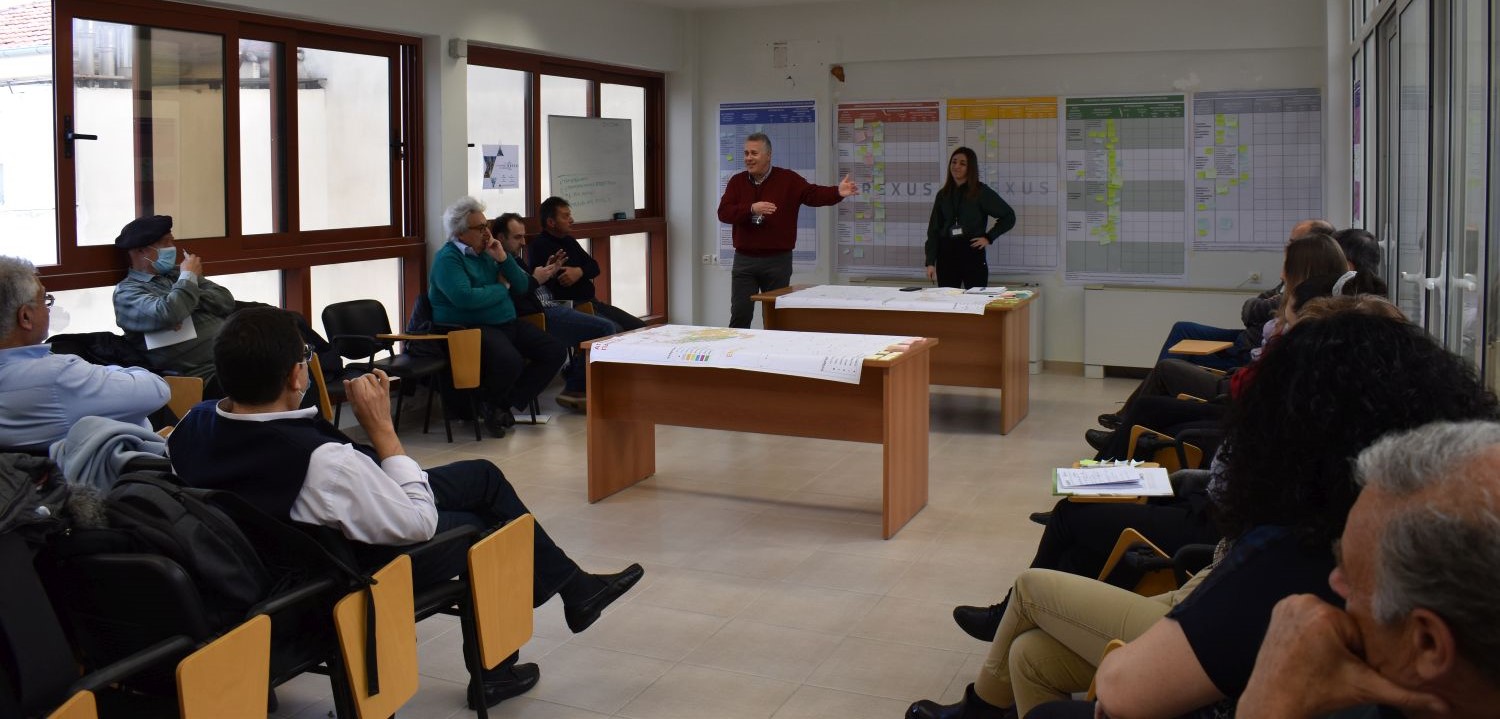At the 2nd Pinios Pilot Technical Workshop organised in the framework of the Horizon 2020 REXUS project, stakeholders relevant to the Water-Energy-Food-Ecosystems-Climate Nexus set specific targets for the sustainable management of Pinios River basin’s natural resources, in light of the impacts of climate change.
The 2nd Pinios Pilot Technical Workshop was organised by REXUS local pilot leader, Soil and Water Resources Institute of the Hellenic Agricultural Organisation “DEMETER” (SWRI) on 20 January 2023 in Larissa, at the premises of the Geotechnical Chamber-Central Greece Department, in the heart of the Pinios River Basin.
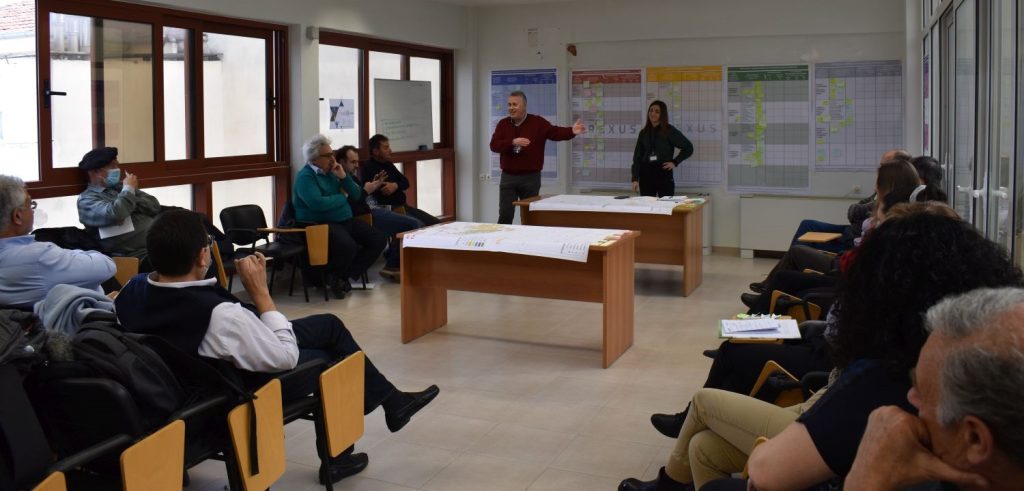
Approximately 40 stakeholders, including representatives from the central and local government, management authorities, farmers’ cooperatives, as well as academics and experts from all Nexus related fields attended the Workshop.
Pinios’s River Basin stakeholders’ invaluable contribution to the overall goal of moving from Nexus thinking to Nexus Doing
The meeting built on the 1st Pinios Technical Workshop that took place in May 2022 in the framework of the local Learning & Action Alliances (LAA), where stakeholders collaboratively worked to identify Pinios River Basin’s main challenges relating to Water, Energy, Food and Ecosystems, including obstacles/inhibitors, risks, impacts, strengths and opportunities. LAAs are at the core of REXUS project’s implementation as they ensure the active engagement of stakeholders who provide input and share valuable knowledge with the project’s Partners on how to progress towards a more integrated management of natural resources.
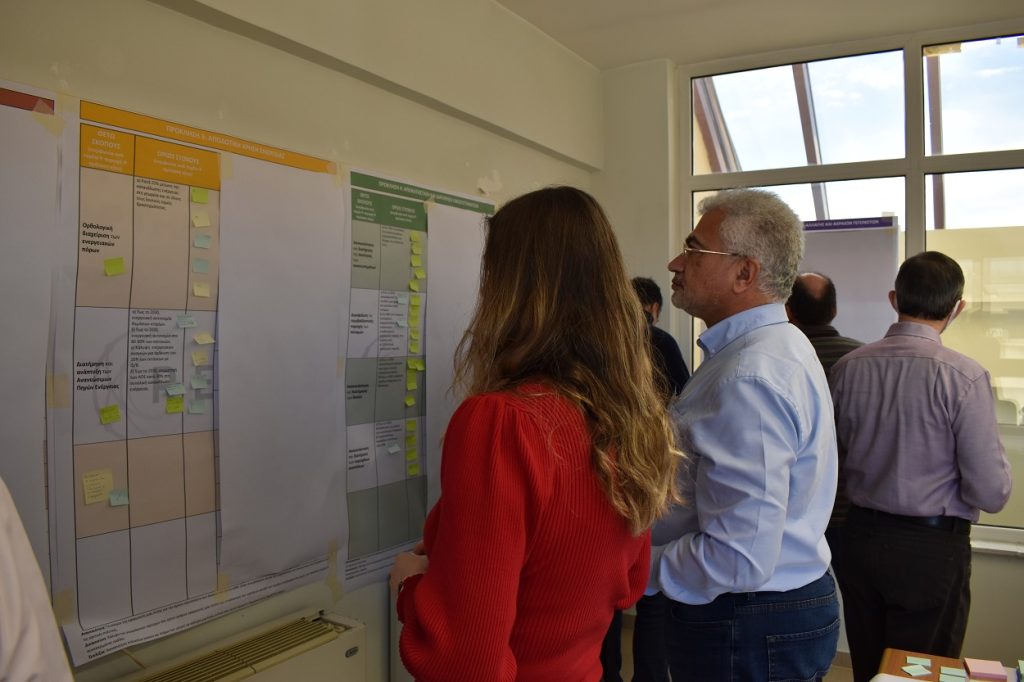
The 2nd Pinios Technical Workshop’s ultimate goal was for stakeholders to provide insights and propose measurable targets to the identified goals to be reached through tangible measures that could tackle the challenges faced by the Water, Energy, Food and Climate sectors in Pinios.
After the welcoming speeches by Dr. Andreas Panagopoulos, Research Director of SWRI and the Secretary of Decentralized Administration of Thessaly and Central Greece, the REXUS team updated participants on the Pinios’s pilot latest developments.
Dr. Dimitrios Malamataris, Research Associate of SWRI, summarized the 1st Workshop’s key outcomes and Dr. Andreas Panagopoulos, presented the LAA participatory activities that had been implemented since May 2022. Ms. Antoniadou from DRAXIS Environmental S.A analysed the Climate Risk Assessment of Pinios Pilot area.
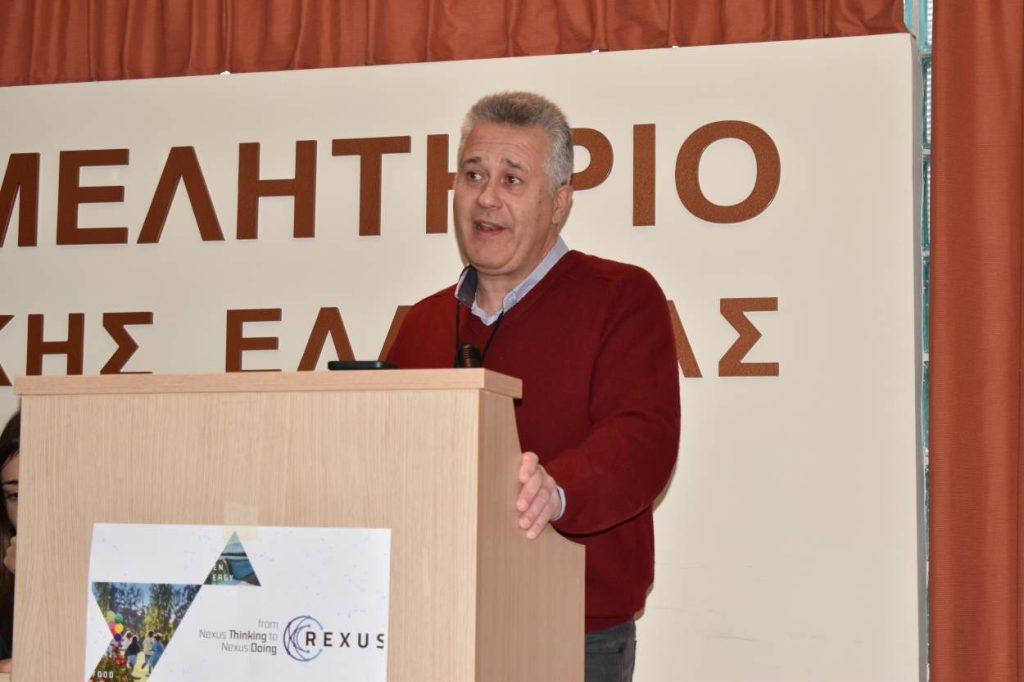
Dr. Andreas Panagopoulos highlighted a new methodology developed by the University of Castilla-La Mancha, REXUS project coordinator, that has been applied on the pilot to calculate the irrigation water consumption of previous years at the field level and the corresponding water footprint.
Participants were subsequently divided into two working groups. Capitalizing on the input they had already provided since the 1st Workshop, they discussed tangible targets for each goal related to the sustainable management of natural resources in the basin. Ultimately, they proposed specific and implementable measures, which they prioritized according to three criteria – necessity, justice and flexibility. Each group subsequently chose three measures per goal and evaluated them.
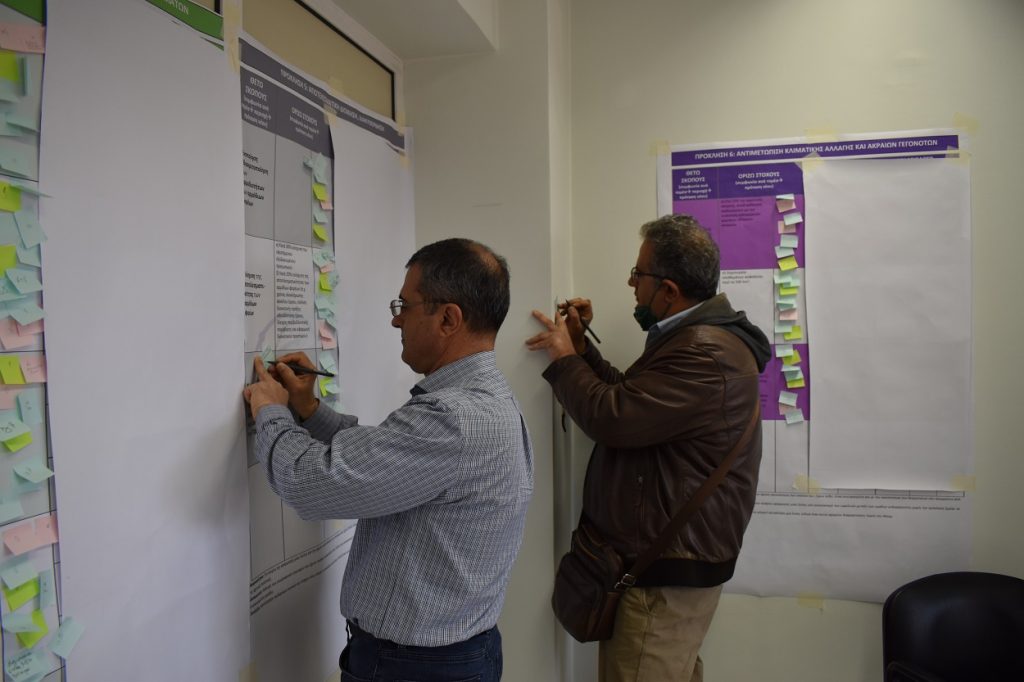
For the interactive part of the workshop, participants divided into two groups of an equal number of participants representing similar bodies and entities across all sectors.
The Workshop ended with the presentation by Mr Konstantinos Babakos SWRI’s Research Associate of the meta-model mock-up developed for the Pinios River Basin by DELTARES with the contribution of SWRI and DRAXIS S.A. Stakeholders provided their input on the design of the platform and offered recommendations on how it can constitute a useful tool for all, that can ultimately contribute to reviewing concrete Nexus solutions impact that increase resilience across sectors.
Acknowledging the important work undertaken by REXUS in developing and validating knowledge and tools to facilitate the transition from WEFE NEXUS theory to practice, the majority of local media covered the event. Indicatively, almost all local news portals and newspapers shared the workshop’s press release, the two main printed newspapers featured interviews and special articles covering REXUS’s main pillars of work in the Pinios River Basin while Dr. Panagopoulos was hosted in both news radio and TV programs.
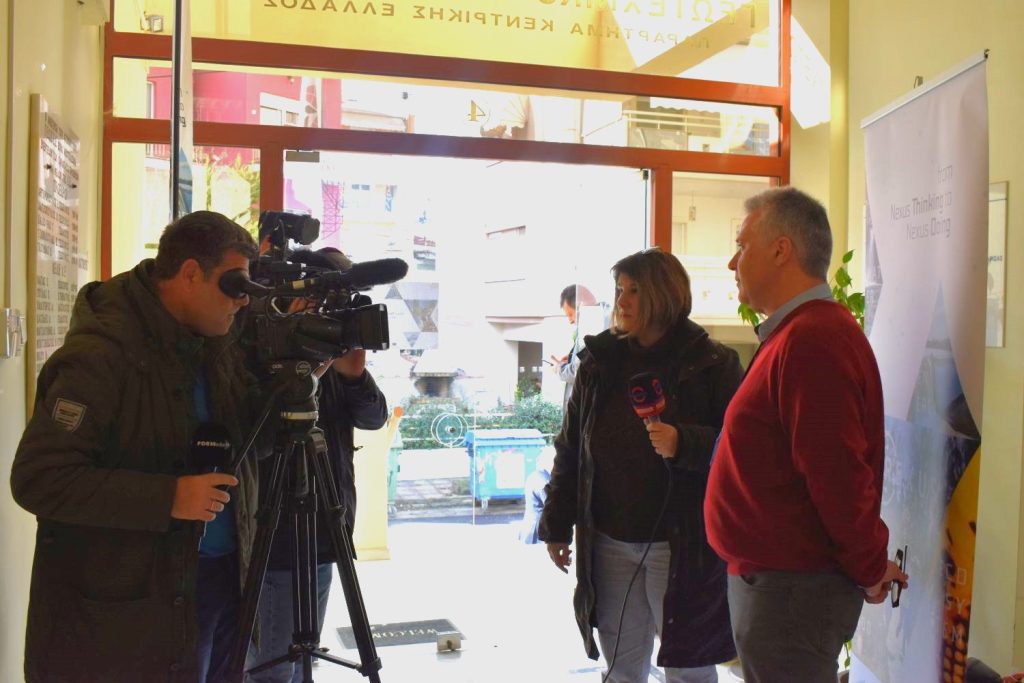
There was extensive media coverage of the event locally, as natural resources challenges, including water scarcity, are acutely felt by the agricultural sector in the Pinios river basin.
The 2nd of a total of 3 Workshops confirmed the key role of stakeholders in designing and formulating participatory Water-Energy-Food Nexus solutions that can address Pinios River Basin’s acute water challenges.

